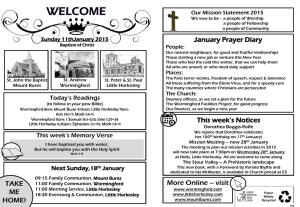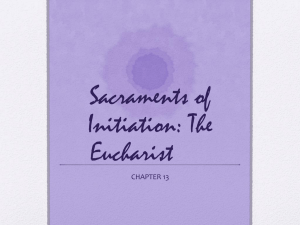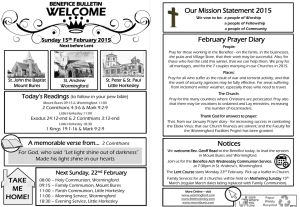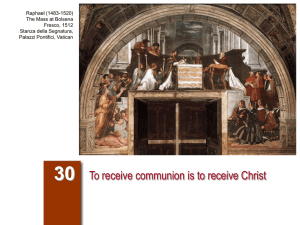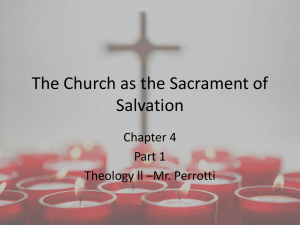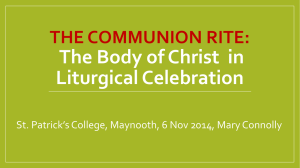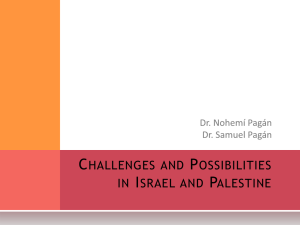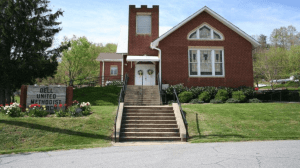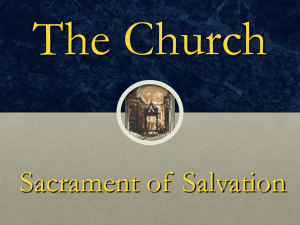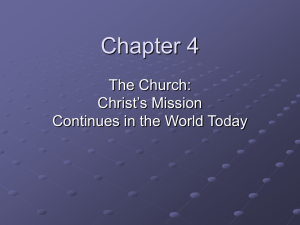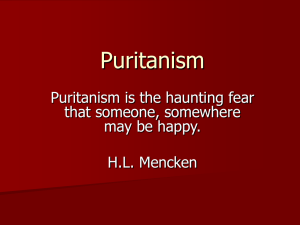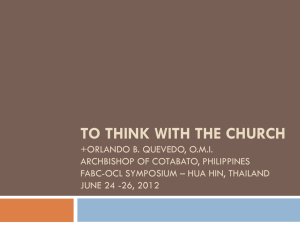This Holy Mystery - Amazon Web Services
advertisement
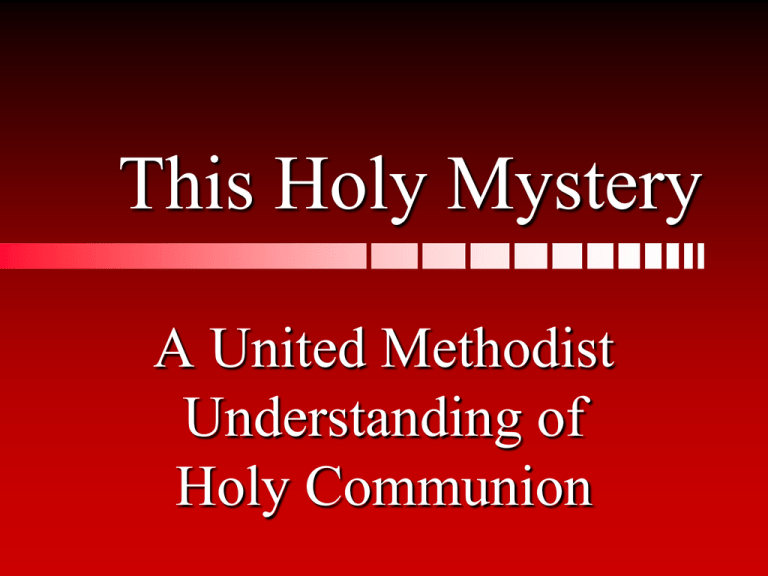
This Holy Mystery A United Methodist Understanding of Holy Communion Names of the Sacrament • The Lord’s supper – reminds us that Jesus Christ is the host and that we participate at his invitation • Holy Communion - invites us to focus on the self-giving of the Holy God, which makes the sacrament an occasion of grace and on the holiness of our communion with God and one another. • Eucharist – the Greek word for thanksgiving, reminds us that the sacrament is thanksgiving to God for the gifts of creation and salvation. • Mass – derived from the Latin word missio meaning “sending forth” and indicates that this celebration brings the worship service to a close by sending forth the congregation with God’s blessing to live as God’s people in the world. • Divine Liturgy – Used most by Orthodox Christianity. • All the names are for the same practice. United Methodist Heritage • The Methodist Movement in the eighteenth century was an evangelical movement that included a revival of emphasis on the sacraments. • The Wesleys recognized the power of God available in the Lord’s Supper and urged their followers to draw on that power by frequent participation. The grace available in and through the sacrament was active • • • • • In conviction In repentance and conversion In forgiveness In sanctification John Wesley described the Lord’s Supper as “The grand channel whereby the grace of his Spirit was conveyed to the souls of all the children of God” The Multifaceted Nature of the Lord’s Supper • It expressed God’s love, grace, sacrifice and forgiveness. • It was the presence of Christ, a Mystery • It was a source of healing, nourishment, holiness • It was a pledge of heaven. • The Wesleys wrote 166 hymns for meditation and singing about Holy Communion. Evangelical and United Brethren Roots • Albright, Otterbein and Boehn left little written material, so there are few references to their theology and practice of Holy Communion. • The Journal of Christian Newcomer shows that the sacrament had a significant place in the life of the church. • Early Methodists received communion in Anglican Churches. • When that source was lost after the Revolutionary war. • The need for ordained clergy to provide the sacrament was a major reason Wesley provided ordained elders for America. • Because of a shortage of elders, communion was often served only on a quarterly basis. • Even after more elders became available the habit of quarterly communion was difficult to change. • Holy Communion was considered a sacred and solemn event. • The tone of the ritual was deeply penitential, calling on people to repent and having less emphasis on celebration of God’s grace. • During the nineteenth and twentieth centuries the rich Wesleyan understandings of Eucharist were largely lost, and the sacrament became understood only as a memorial of the death of Christ. • In many churches attendance on communion Sundays became low. • A revitalization of the sacrament started in the mid-twentieth century. Communion within the context of United Methodist Theology • We are sinners. • We are constantly in need of divine grace. • God is gracious and loving, always making available the grace we need. • Grace is God’s love towards us, God’s free and undeserved gift. • All grace is prevenient. • The grace of God is made available through the life, death and resurrection of Jesus Christ and works in our lives through the presence and power of the Holy Spirit. • God has designated certain means or channels through which grace is most surely and immediately available. • These channels convey to us preventing, justifying and sanctifying grace. The Theology of Sacraments • The Greek word used by the early church for the sacrament is mysterion, translated mystery. • In Latin the word used is sacramentum, meaning a vow or promise. • The sacraments were instituted by Christ and give to the church. • Jesus Christ himself is the ultimate manifestation of a sacrament. • Holy Communion is the sacrament that sustains and nourishes us in our journey of salvation. • God uses tangible, material things as vehicles or instruments of grace. • “An outward sign of inward grace, and a means whereby we receive the same.” The Meaning of Holy Communion • Holy Communion is Eucharist, an act of thanksgiving • Holy Communion is the communion of the church – the gathering community of the faithful, both local and universal. • Holy Communion is remembrance, commemoration, and memorial, but this remembrance is much more than simply intellectual retelling. • Holy Communion is a type of sacrifice. It is a representation, not a repetition of the sacrifice of Christ. • Holy Communion is eschatological, meaning that it has to do with the end of history, the outcome of God’s purpose for the world • Holy Communion is a vehicle of God’s grace through the action of the Holy Spirit Who can receive communion? Is Communion Jesus’ body? Can children receive communion? Can non-UM members receive? How often should we have it? Who can serve communion? Who consecrates communion? How is the table extended? What is the role of the Deacon? Wine or grape juice? What do you do with left-overs? How does communion express unity?
